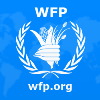Areas worst affected by the 2015 Nepal earthquakes include mountainous and alpine regions with dispersed rural populations. Many affected areas have been isolated by continuing frequent landslides and objective hazards, creating significant safety risks for travel and transport by affected communities and humanitarian actors alike. Monsoon season rains and on-going aftershocks are exacerbating these constraints contributing simultaneously to urgent humanitarian needs and a high-risk operating environment.
In response WFP has launched the Remote Access Operation (RAO) to reach communities in remote and mountainous affected areas across five districts: Gorkha, Dhading, Rasuwa, Sindupalchok, and Dolakha. This operation encompasses:
Trail Reconnaissance, Safety Assessment and Monitoring - WFP has partnered with elite mountaineers expert in remote area access to establish reconnaissance, safety assessment, technical guidance and monitoring of trail rehabilitation and transport operations in remote affected areas. The group comprising up to nine remote area teams, district and national coordinators form a core component of the remote area operation and act as the ‘eyes and ears’ of WFP in these remote and dangerous environments.
Last Mile Common Transport - WFP, as lead agency of the Logistics Cluster, is now working with the Nepal trekking and mountaineering communities to mobilize porters in order to reach people living in the most remote affected areas. Using porters managed by the Trekking Association of Nepal (TAAN) and the Nepal Mountaineering Association (NMA) and pack-animals directly operated by WFP’s RAO teams, a common logistics supply chain is being established to bring food, shelter, sanitary health and medical supplies to approximately 80,000 people living in isolated worst-affected.
Trail Rehabilitation - The mountain trail network plays a vital role in the lives and livelihoods of those living in the remote communities. Missions both by air and with the local mountaineering and trekking associations have been taking place over the last two weeks to conduct post-earthquake assessments of the main trekking trails to identify those in need of rehabilitation to ensure safe passage for all who travel them and reopen market access.
General Requirements:
DESIRED EXPERIENCES FOR ENTRY INTO THE ROLE:
Has experience collecting and monitoring financial data on projects and programmes, assessing financial health and status, and reporting findings to senior leaders.
STANDARD MINIMUM ACADEMIC QUALIFICATIONS:
Education: Completion of Secondary school education. A post-secondary certificate in the related functional
area is desirable.
Language: Fluency in both oral and written communication in the UN language in use at the duty station and in the duty
station’s language, if different.
How to Apply:
Interested and qualified Nepalese nationals are requested to submit an updated and duly signed UN Personal History form (P.11), available on http://www.un.org.np/jobs/locals and from the WFP offices in Nepal (Kathmandu, Nepalgunj, Damak and Dadelhura). The application can be sent either by email to nepaler.vacancy@wfp.org or in hard copy in a sealed envelope marking the position “Application for the post of Finance Assistant (SO)” and quoting the VA number to the following address No Later than 21 July 2015.
The Representative,
WFP Nepal Country Office
Chakupat, Patan Dhoka Road
Lalitpur, Nepal
P.O. Box 107
“Qualified female candidates and candidates from minority groups are especially encouraged to apply”.
Only short-listed candidates will be invited for a test and an interview.
The organization reserves the right to cancel or postpone the whole recruitment process without providing any reasons whatsoever.


